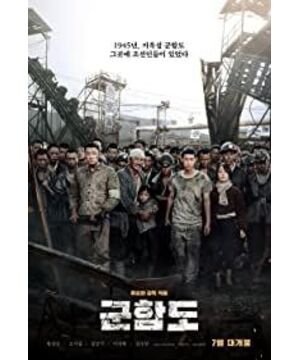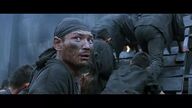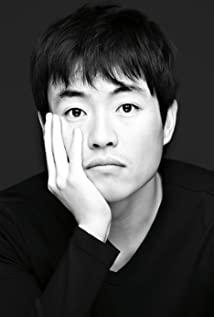There are a lot of Korean anti-Japanese movies, from the Joseon era to the merger of Japan and South Korea, and then to the Pacific War, and also made a lot of movies around the themes of conspiracy, assassination, annexation, peace, Korean traitors, and comfort women. The most unsuccessful is "Assassination" starring Jun Ji-hyun, Lee Jung-jae and Ha Jung-woo. But what I want to talk about today is another movie "Battleship Island" about Japan's forced labor from North Korea. It is also a kind of box office guarantee that popular actors Huang Chenmin, So Zhixie and Song Zhongji are in the lead. Before that, I had some knowledge of the history of Gunkanjima. Japan also successfully applied for it as part of the world cultural heritage in 2015, becoming a famous Nagasaki city. tourist attractions. The movie is like all anti-Japanese movies. You must know how cruel the Japanese militarists are. You must know that our compatriots have fallen under the slaughtering knives of the invaders. , perhaps the truth is far from being so single. The confrontation in the film is not just between the Japanese rulers and the conscripted North Korean laborers, but also between the laborers and the North Koreans who manage them, who do things for the Japanese and obey their orders to oppress their compatriots; The confrontation between people who can speak Japanese and those who can speak Japanese at the same time, they think that they can speak Japanese is a traitor of Korea; and later, before the riot, someone even said that "the Japanese are more civilized than us, we should talk to them first" such people who are greedy for life and fear of death The opposition of people who want to fight to the death. This kind of opposition makes people feel that there is no single order and obedience between the colonizers and the ruled. He speaks Japanese, and even has a Japanese name, Huang Chenwen is even a downright pro-Japanese faction. Before he was caught, he was a duck to water in Japanese circles. With a clever mind, he quickly found himself between the mine workers and the Japanese. A comfortable balance. But this doesn't affect him becoming a hero in the end, but you won't think there's anything good in him anyway, who can also speak Japanese and manage the Koreans for the Japanese. That's the difference. In order not to be regarded as a comfort woman by the Japanese, Huang Yanmin's daughter even shouted "Great Japanese Empire, Long Live!" in front of the Japanese in order to protect herself, but this does not affect your view that she is a lovely child. In addition to the brutality of the Japanese in the film, we also see the disunity and cowardice of the Korean nation at a critical moment, and daring to be tarnished by the black nation is also a kind of courage for the director. In fact, under a certain atmosphere, it was understandable for everyone to share the same hatred, but in the real riot, some people will be held back, some people will be timid, and even inform themselves for self-protection. And these human weaknesses seem to be hidden by the halo of the plot in our films. Our common people all support the Eighth Route Army, all our common people are politically conscious, and all our common people can be armed at any time and The devil is fighting, our common people are calm and calm when they are arrested and shot to the public, with four big characters written on their faces, "seeing death as home." In order to establish two kinds of opposition, we can't wait to draw a "deep ditch" between these two people, for fear that the audience will not be able to see who is good and who is bad. One of the details in the film is that when Huang Yanwen and his daughter were separated and brought to the theater by the Japanese to prepare for the reunion, the father did not forget to make funny faces with his daughter from afar to make her happy. This kind of picture will never appear under our camera, because the father and daughter were both caught by the devils, where is the mood to joke? Song Zhongji was organized to rescue the labor leader, but it was discovered that the leader secretly colluded with the Japanese mine owner and stole the hard-earned money of his compatriots. How could such a thing happen? We don't shoot like this because our organization doesn't make mistakes. Such a Korean movie with the main theme is believed to make many Koreans more deeply aware of the crimes they have committed against Japan and the difficulties they have experienced in the process of striving for national independence. And I seem to only remember the devils like a group of fools and our witty and brave army. If devils are so easy to deal with, what are we doing in the last few years of the eight-year Anti-Japanese War? In short, this film is not a good work, but the confrontation between classes it reflects is real, and there is no simple way to classify human nature in a one-size-fits-all way. On the poster of our "Founding of the Army", the faces and bodies of the little fresh meat were clean as if they had just come out of the bath center. I don't believe that the Nanchang Uprising could succeed in such a clean riot. There are a lot of things that can be filmed in Anti-Japanese China. Why are all the films that come out of the film? It’s really good to watch the photos like this. Originally, you can guess the theme of the end just by looking at the beginning. If you don’t go deeper, who cares about you. How many mines are hidden in the crotch? But if the movie shows many aspects of human nature under the opposition, you will think that "The Devil Is Coming" is a good movie, there is no one...
View more about The Battleship Island reviews











